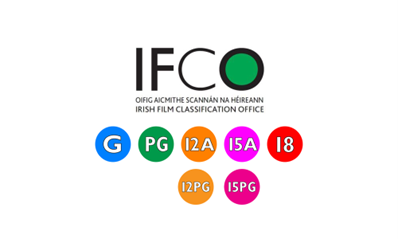India: The Film Certification Tribunal’s Demise
The Finance Minister of India, while explaining the purpose of the Bill in Parliament, reasoned that the government wanted to reduce many tribunals by merging those with similar functions.
What is a Tribunal?
Tribunals are judicial or quasi-judicial institutions created to provide speedy adjudication of disputes than traditional courts while also providing subject expertise on specific issues.
Why was the bill introduced?
There are currently 19 functional tribunals in India. The bill states that holding tribunals in several sectors has not always led to speedier justice. This finding
is based on the analysis of the past three years’ data, showing that frequent tribunals add to the exchequer’s expense.
The bill, therefore, seeks to do away with certain appellate bodies and turn over those functions to the existing judicial bodies. It received Presidential assent Aug. 13 2021 and became the Tribunals Reforms Act, 2021.
Appellate bodies affected by the bill
This bill details amendments to the Cinematograph Act, 1952, the Customs Act, 1962, the Airports Authority of India Act, 1994, the Trademarks Act, 1999, and the Protection of Plant Varieties Farmers’ Rights Act, 2001. In this process, all Tribunals handling the appellate functions for these Acts will be abolished and their functions transferred.
Film Certification Appellate Tribunal (FCAT)
The Film Certification Appellate Tribunal (FCAT) was a statutory body formulated by the Ministry of Information & Broadcasting in 1983, under the Cinematograph Act, 1952. Its primary function was to hear and decide on appeals by filmmakers not satisfied with the decision of the Central Board of Film Certification (CBFC) – the film certification body responsible for certifying and regulating the public exhibition of films in the country.
For theatrical release, television broadcast, or any public exhibition in India, films must carry a CBFC certification. CBFC comprises 23 members and a chairman, all appointed by India’s government.
There are several instances where movies denied a certificate by the CBFC (for various reasons) were allowed for release after appeals to the FCAT. The 2018 film “Kaalakandi” was ordered a total of 72 cuts by the CBFC, mainly for the number of profanities. However, on appeal to the FCAT, the film was certified ‘U/A,’ which translates to unrestricted public exhibition subject to parental guidance for children below the age of 12 and allowed for release with only one cut.
The CBFC refused the film “Lipstick Under My Burkha” in 2016 certification for including bold themes on women’s sexuality. Appealing to the FCAT resulted in the movie being released with some cuts and an ‘A’ certificate for an adult audience.
The 2015 film “Haraamkhor,” which portrays the romantic relationship between a male teacher and a young female student, was denied certification by the CBFC for being too provocative. Again, the FCAT overturned the decision and allowed the film to release, reasoning that it warned all impressionable children to be conscious of their rights.
Abolishment of the Film Certification Appellate Tribunal (FCAT)
The Tribunals Reforms Bill, 2021, abolishes the FCAT, which means filmmakers dissatisfied with the CBFC’s decisions will need to approach the High Court to file their grievances.
Filmmakers are concerned that approaching the courts will be an expensive, drawn-out affair, and many cannot afford the cost. It is also worth noting that the High Court judges may not have the time to watch disputed films at length nor the expertise to recheck a film thoroughly in the manner the FCAT would before arriving at a decision.
The vast number of pending cases before the Courts means that filmmakers could bear considerable potential monetary losses should the film’s release be postponed due to a delay in the court’s petition hearing. Conversely, the FCAT settled approximately 20 cases each month, a figure that would be challenging for the Courts to match.
Filmmakers think twice about pushing the boundaries of creativity in their works for fear of disagreement or controversy with the CBFC.
Conclusion
Films have a profound impact on our lives. Besides providing great entertainment, they help us better understand ourselves and expand our knowledge about societies and cultures worldwide. Films are used as a medium for change and evolution to create a more tolerant world of differences.
Thus, artistic freedom of expression must be maintained at all costs. Abolishing the FCAT seems a step in the opposite direction, leaving filmmakers between a rock and a hard place.
Share this post
Share this post
Related Posts











